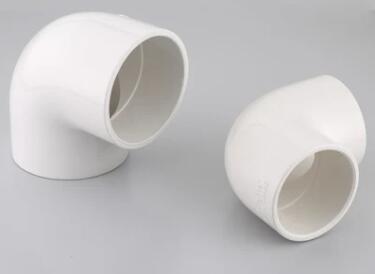What materials are commonly used for manufacturing pipe fittings
2023-10-27
Pipe fittings can be manufactured from a variety of materials, each chosen based on the specific requirements of the plumbing or piping system. Common materials used for manufacturing pipe fittings include:
1. Metal Alloys:
- Stainless Steel: Stainless steel pipe fittings are highly corrosion-resistant, making them suitable for applications where corrosion is a concern, such as in the chemical, food processing, and pharmaceutical industries.
- Carbon Steel: Carbon steel fittings are strong and durable, often used in high-pressure and high-temperature applications, such as in oil and gas systems.
- Brass: Brass fittings are corrosion-resistant and relatively malleable, making them suitable for plumbing applications, including potable water systems.
- Copper: Copper fittings are known for their excellent thermal conductivity and are commonly used in plumbing systems for hot and cold water.
- Aluminum: Aluminum fittings are lightweight and corrosion-resistant, making them suitable for low-pressure applications and in environments where weight is a concern.
2. Plastics:
- PVC (Polyvinyl Chloride): PVC fittings are commonly used in plumbing and irrigation systems due to their resistance to corrosion and chemical damage.
- CPVC (Chlorinated Polyvinyl Chloride): CPVC fittings are suitable for hot water applications and have higher temperature resistance than PVC.
- HDPE (High-Density Polyethylene): HDPE fittings are lightweight, durable, and used in water supply and wastewater systems.
- PP (Polypropylene): PP fittings are resistant to chemical corrosion and are used in chemical processing and water treatment applications.
- PEX (Cross-Linked Polyethylene): PEX fittings are used in flexible plumbing systems, providing resistance to scale buildup and ease of installation.
3. Alloys:
- Copper-Nickel: Copper-nickel fittings are known for their resistance to seawater and are commonly used in marine and offshore applications.
- Monel: Monel is a nickel-copper alloy with excellent resistance to corrosion, making it suitable for highly corrosive environments, including chemical and marine applications.
- Inconel: Inconel is a high-temperature and corrosion-resistant alloy often used in extreme conditions such as aerospace and petrochemical applications.
- Hastelloy: Hastelloy alloys offer exceptional resistance to corrosion and are used in aggressive chemical and petrochemical environments.
- Duplex and Super Duplex Stainless Steel: These alloys are known for their high strength and resistance to corrosion, making them suitable for offshore, oil and gas, and chemical processing applications.
4. Other Materials:
- Rubber and Elastomers: Rubber fittings are used as gaskets and seals in piping systems to ensure leak-tight connections and prevent fluid escape.
- Fiberglass: Fiberglass fittings are employed in industries where resistance to corrosion and high-temperature resistance are essential, such as in chemical plants.
- Ductile Iron: Ductile iron fittings are used in water and wastewater systems due to their strength and durability.
- Cast Iron: Cast iron fittings are known for their longevity and are often used in sewage and drainage systems.
The choice of material depends on various factors, including the type of fluid or gas being transported, temperature and pressure conditions, the specific requirements of the application, and considerations such as corrosion resistance, durability, and cost. Proper material selection is crucial to ensure the safe and efficient operation of plumbing and piping systems.



